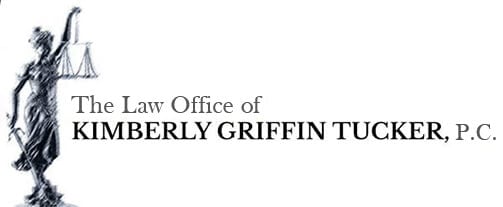Keeping Your Past Private With Orders Of Nondisclosure
Anyone can experience trouble with the criminal justice system. But after successfully resolving those issues, you should be able to put the past behind you and participate fully in daily life again. Unfortunately, having any sort of criminal record can haunt you for years. A criminal record can make it much harder to get a job, a good place to live and access to student loans.
You can’t change the past, but you may be able to keep it private. People who successfully complete a program of deferred adjudication community supervision may be eligible for an order of nondisclosure. This doesn’t get rid of your criminal record, but it keeps it hidden from employers and others who might discriminate against you based on your record.
When you contact The Law Office of Kimberly Griffin Tucker, P.C., Mrs. Tucker may be able to help you rebuild your reputation by petitioning the court for an order of nondisclosure.
The History Of Nondisclosure And Deferred Adjudication In Texas
In the past, people who pled to deferred adjudication probation were told they would not have a criminal record. They were shocked when their criminal histories began to haunt them. They found that they were not eligible for expunction, so their arrest records became forever available for public knowledge.
After years of no relief for this problem, a solution was finally created on September 1, 2003, in the form of nondisclosure. This new law permitted the court to seal a successfully completed deferred adjudication community service/probation from public knowledge. However, in order to obtain an order of nondisclosure, you must request it formally.
How The Law Office Of Kimberly Griffin Tucker, P.C., Can Help
Attorney Kimberly Griffin Tucker assists individuals who have successfully completed deferred adjudication community service or probation in Texas and are eligible to petition for an order of nondisclosure. In fact, Mrs. Tucker was the first lawyer to file an order of nondisclosure petition in Denton and in Denton County when it came to pass in 2003. Over the course of time, she has become very well-versed in this area of the law and will work hard to get your nondisclosure approved by the court.
Once granted, a nondisclosure prohibits DPS (who maintains these records) from giving this information out to the companies that want to buy your criminal records and make them available to the public. A nondisclosure also allows you to deny the occurrence of that arrest and prosecution unless the records are being used in subsequent criminal proceedings. It is important to note that government agencies will still have access to records that have an active order of nondisclosure. Therefore, if pursuing employment with a government agency, they will likely become aware of the record.
Are You Eligible For An Order Of Nondisclosure?
Eligibility depends on what level of offense you were charged with. Additionally, some criminal offenses have a waiting period and you can lose your eligibility for nondisclosure if you get into trouble again (like you receive a subsequent conviction or deferred adjudication — this does not include traffic violations).
The best way to understand your options is to speak to an experienced attorney like Mrs. Tucker.
Discuss Your Legal Options During An Initial Consultation
The Law Office of Kimberly Griffin Tucker, P.C., serves clients in Northeast Texas including Collin, Dallas and Denton counties. To speak to Mrs. Tucker about the possibility of a nondisclosure, call the firm at 972-833-8246 or fill out an online contact form.
